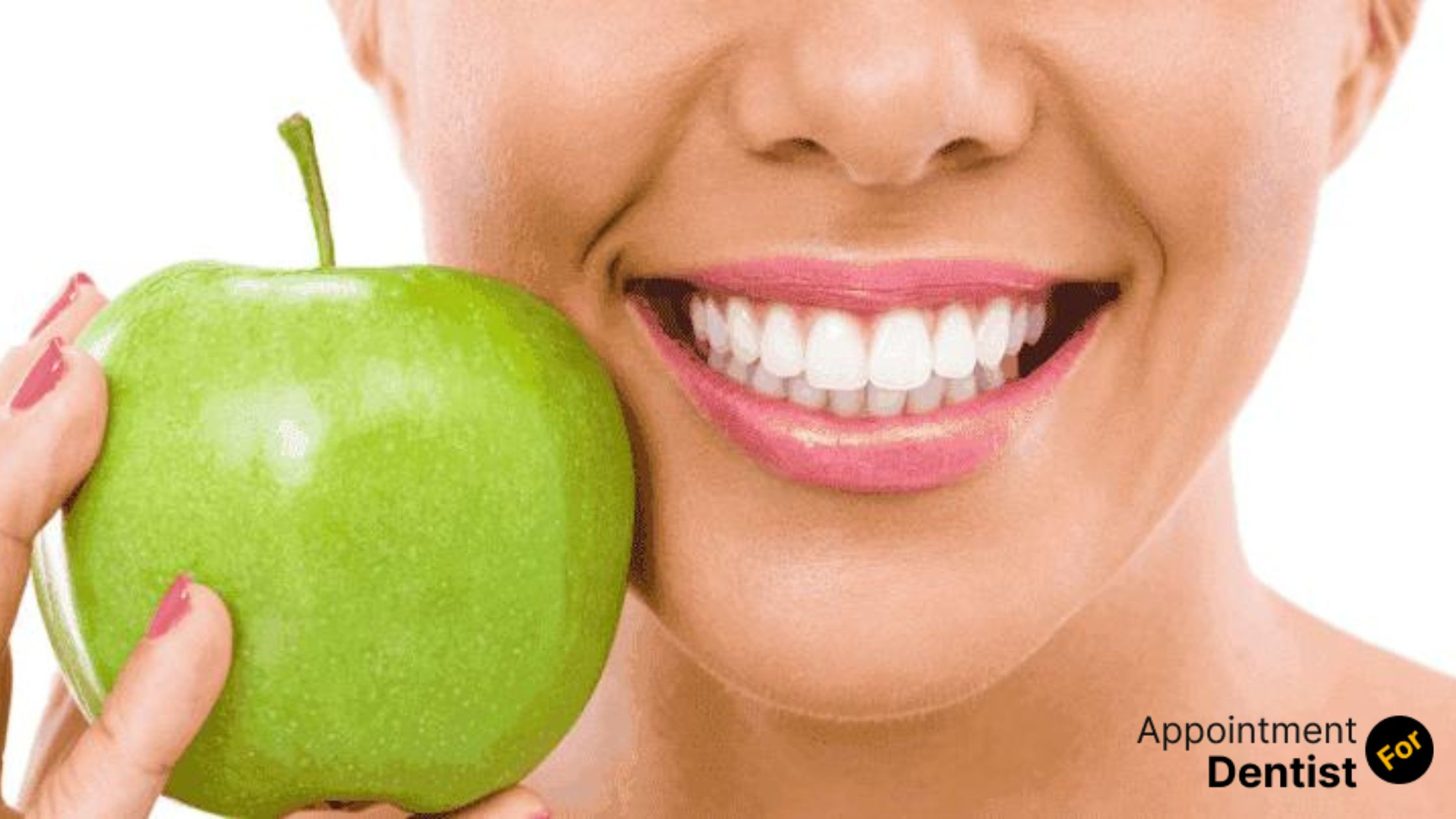The Importance of a Balanced Diet for Strong Teeth
Posted on July 10, 2024 by Admin

The Importance of a Balanced Diet for Strong Teeth
Maintaining strong and healthy teeth goes beyond just brushing and flossing regularly; it also involves paying attention to what we eat. A balanced diet plays a crucial role in promoting dental health, preventing decay, and ensuring overall oral well-being. This article explores the significance of a balanced diet in maintaining strong teeth, highlighting key nutrients and dietary practices that contribute to oral health.
Nutrients Essential for Dental Health
Several nutrients are particularly important for maintaining strong teeth and preventing dental problems:
- Calcium: Calcium is a mineral essential for building strong bones and teeth. It helps to strengthen tooth enamel, the outer layer of teeth that protects against decay. Good sources of calcium include dairy products like milk, cheese, and yogurt, as well as leafy green vegetables and fortified plant-based milks.
- Phosphorus: Phosphorus works together with calcium to strengthen tooth enamel and bones. It can be found in protein-rich foods such as meat, poultry, fish, eggs, nuts, and beans.
- Vitamin D: Vitamin D is crucial for the absorption of calcium and phosphorus from the diet. It helps to maintain proper mineralization of teeth and bones. The primary source of vitamin D is sunlight, but it can also be obtained from fortified foods like milk, cereals, and fatty fish.
- Vitamin C: Vitamin C is important for healthy gums and supporting the healing process of gum tissues. It is found in fruits and vegetables such as oranges, strawberries, kiwi, bell peppers, and broccoli.
- Antioxidants: Antioxidants, including vitamins C and E, help to protect gum tissues and other oral tissues from damage by free radicals. They can be found in a variety of fruits, vegetables, nuts, and seeds.
- While certain nutrients promote dental health, others can contribute to dental problems if consumed in excess. Sugars and acids, in particular, can erode tooth enamel and lead to cavities:
- Sugars: Bacteria in the mouth feed on sugars from food and drinks, producing acids as a byproduct. These acids can dissolve tooth enamel over time, leading to tooth decay and cavities. Limiting consumption of sugary foods and beverages, especially sticky candies and sugary drinks, helps to reduce the risk of dental decay.
- Acids: Acidic foods and drinks, such as citrus fruits, tomatoes, vinegar, and carbonated beverages, can also weaken tooth enamel. While these foods are part of a healthy diet, consuming them in moderation and rinsing with water afterward can help minimize their impact on dental health.

All You need to know about: How Diet and Nutrition Affect Your Teeth and Gums
Balanced Diet Tips for Strong Teeth
To maintain strong teeth and overall oral health, consider the following dietary tips:
- Eat a variety of foods: Include a diverse range of nutrient-rich foods in your diet to ensure you receive all essential vitamins and minerals for dental health.
- Limit sugary snacks: Choose nutritious snacks like fruits, vegetables, cheese, and yogurt instead of sugary treats. If you do consume sweets, brush your teeth afterward or rinse your mouth with water.
- Drink plenty of water: Water helps to rinse away food particles and acids that can contribute to tooth decay. It also keeps your mouth hydrated and supports saliva production, which is important for neutralizing acids and protecting tooth enamel.
- Choose tooth-friendly snacks: Opt for snacks that promote dental health, such as crunchy fruits and vegetables (like apples and carrots) that stimulate saliva production and help clean teeth naturally.
- Maintain good oral hygiene: Alongside a balanced diet, brush your teeth at least twice a day with fluoride toothpaste, floss daily, and visit your dentist regularly for check-ups and professional cleanings.
Must Read: Things You Should Know About Dental Insurance
Conclusion
In conclusion, a balanced diet is essential for maintaining strong teeth and preventing dental problems. By consuming nutrient-rich foods and limiting sugary and acidic snacks, you can support optimal dental health and overall well-being. Incorporate these dietary tips into your daily routine to ensure your smile stays healthy and bright for years to come. Remember, what you eat impacts not only your waistline but also your dental hygiene—so choose wisely for a healthier mouth and a happier smile!
Faqs
-
1. Why is a balanced diet important for dental health?
A balanced diet provides essential nutrients like calcium, phosphorus, and vitamins D and C, which are crucial for strong teeth and healthy gums.
-
2. Which foods should I include in my diet for strong teeth?
Include foods rich in calcium (dairy, leafy greens), phosphorus (meat, nuts), vitamin D (milk, fatty fish), and vitamin C (citrus fruits, peppers) to support dental health.
-
3. How do sugars and acids affect dental health?
Sugars and acids can erode tooth enamel over time, leading to tooth decay and cavities. Limiting sugary snacks and acidic foods helps prevent dental problems.
-
4. Can drinking water improve dental health?
Yes, drinking water helps rinse away food particles and acids, keeps the mouth hydrated, and supports saliva production, which protects tooth enamel.
-
5. What are tooth-friendly snacks?
Tooth-friendly snacks include crunchy fruits and vegetables (like apples and carrots) that stimulate saliva flow and help clean teeth naturally.
Recent Post
- The Importance of Oral Health Education for Children
- How to Choose the Right Orthodontic Treatment for Adults
- The Link Between Oral Health and Stroke Risk
- How to Address and Prevent Gum Recession
- Innovations in Dental Anesthesia: Pain-Free Procedures
- The Role of Saliva in Oral Health: Functions and Disorders
- Exploring Holistic Dentistry: What You Need to Know
- How Oral Health Affects Your Immune System
- The Benefits of Using Dental Probiotics
- Oral Health and Pregnancy: Myths and Facts